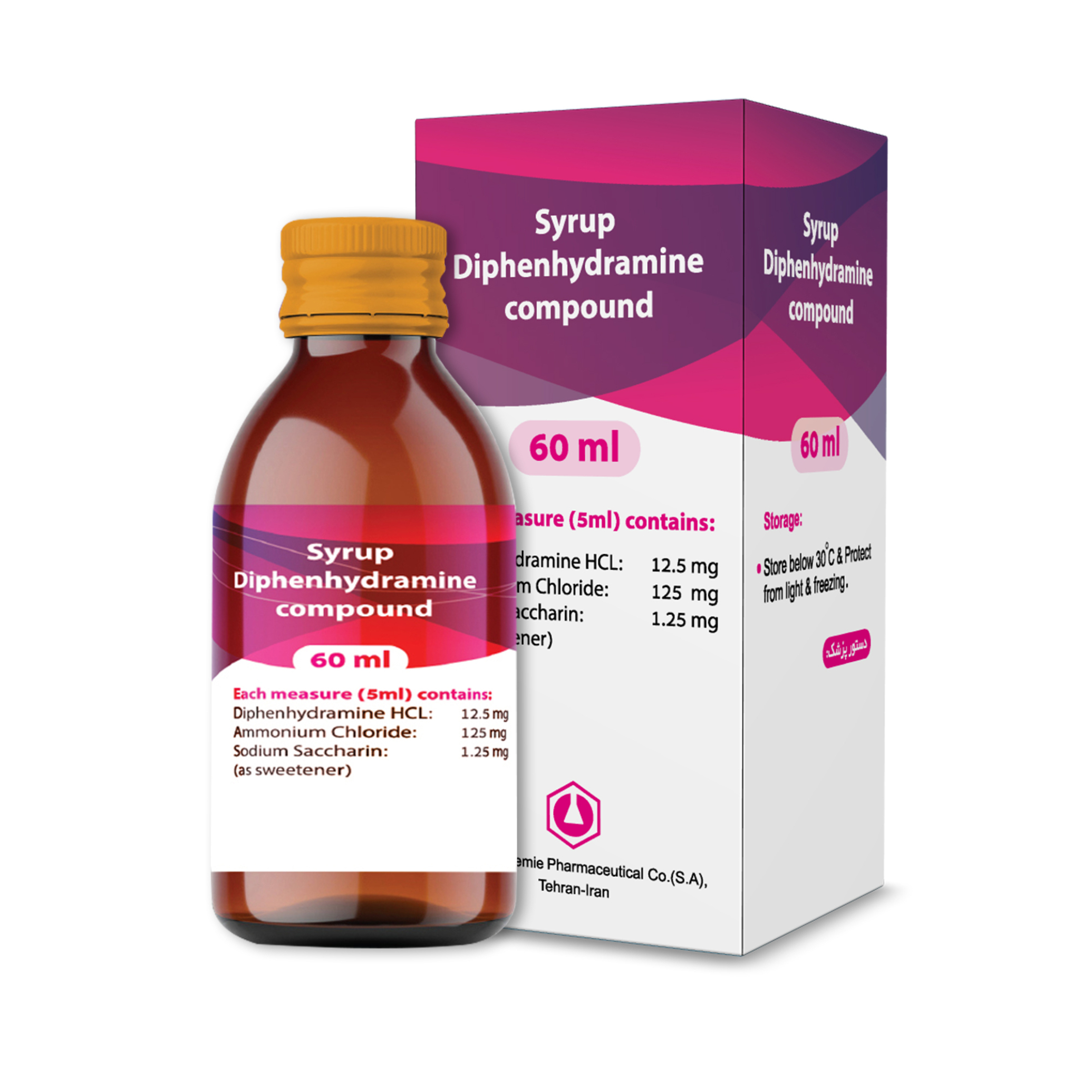Diphenhydramine Compound Syrup
Diphenhydramine Compound Syrup is used to treat sneezing; runny nose; itching, watery eyes; hives; rashes; itching; and other symptoms of allergies and the common cold.
- Indications
- Mechanism of action
- Drug interactions
- Warnings
- Use in pregnancy and breastfeeding
- نظرات
Diphenhydramine compound syrup is indicated for the relief of symptoms associated with allergies, hay fever, and the common cold, including sneezing, itching, runny nose, and watery eyes. It is also used for the relief of symptoms associated with urticaria (hives) and other allergic skin disorders, as well as to prevent and treat motion sickness and to aid in the management of insomnia. Diphenhydramine is an antihistamine and works by blocking the effects of histamine in the body, which can lead to the relief of these symptoms.
Diphenhydramine compound syrup is an antihistamine that contains diphenhydramine hydrochloride. It blocks the effects of histamine, which is a substance in the body that causes allergic reactions and symptoms such as runny nose, sneezing, itching, and watery eyes when encountering allergens. Diphenhydramine competes with histamine for binding sites, thus preventing an allergic response. Additionally, the medicine has sedative effects, making it useful in treating insomnia and motion sickness. Diphenhydramine can also reduce the symptoms associated with urticaria and other allergic skin disorders.
Diphenhydramine compound syrup may interact with certain drugs, such as other antihistamines, medications that cause drowsiness, or drugs that can cause urinary retention or constipation. Alcohol can increase its sedative effects. Diphenhydramine can also interact with medications that affect the liver or are used in anesthesia. Patients are advised to inform their healthcare provider of all medications, supplements, and herbal remedies they are taking to avoid any potential drug interactions.
Diphenhydramine compound syrup has several warnings: it can cause sedation, is contraindicated in those with hypersensitivity to antihistamines, can worsen glaucoma symptoms and cause urinary retention, should be used with caution in pregnant and breastfeeding women, and can interact with other medications. Patients should follow their healthcare provider's instructions and be cautious about performing tasks that require mental alertness. If they experience adverse effects, they should contact their healthcare provider immediately.
Diphenhydramine compound syrup should be used with caution during pregnancy and breastfeeding. It should only be taken if necessary, and healthcare providers should weigh the potential risks and benefits for both the mother and the fetus/infant.


هنوز نظری ثبت نشده
اولین نفری باشید که نظر میدهید
ثبت نظر